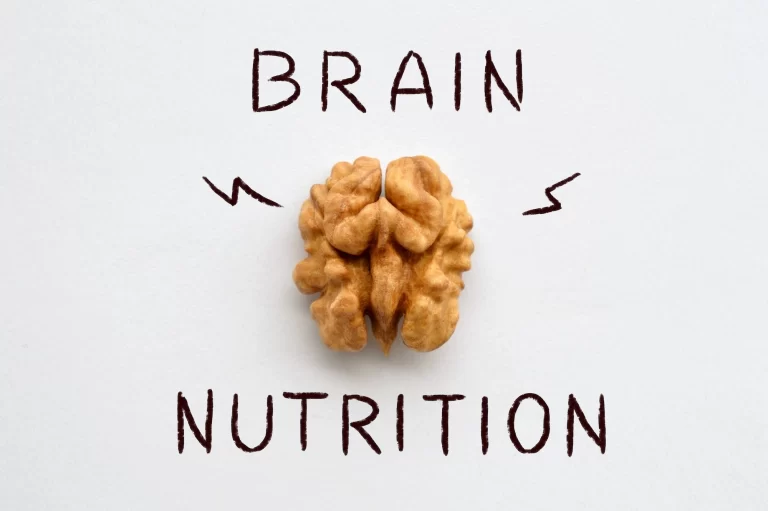In today’s fast-paced world, the convenience of fast food has become a staple in many people’s lives. However, beyond its quick accessibility and delicious taste, there lies a concerning connection between fast food consumption and mental health. In this blog, we will explore the definition of fast food, debunk some common myths, delve into the facts surrounding its impact on mental health, discuss potential solutions, and draw a conclusion on how we can make informed choices for our overall well-being.

Definition of Fast Food
Fast food refers to easily prepared, processed, and served meals that are typically high in calories, saturated fats, sugars, and salt. These meals are often available at chain restaurants, drive-thrus, and takeout establishments, emphasizing speed and convenience over nutritional value. Examples include burgers, fries, pizza, and sugary beverages.
Myths and Facts:
Myth: Fast food only affects physical health.
Fact: While fast food is known for its contribution to physical health issues like obesity and cardiovascular problems, its impact on mental health is equally significant. Research suggests a correlation between a diet high in processed foods and an increased risk of mental health disorders such as depression and anxiety.
Myth: Fast food is an occasional indulgence and doesn’t pose a long-term threat.
Fact: Regular consumption of fast food has been linked to chronic conditions that can adversely affect mental health, including inflammation, oxidative stress, and impaired cognitive function. Long-term patterns of poor nutrition can contribute to the development or exacerbation of mental health issues.
Solutions
Community Gardens and Farmers’ Markets:
Foster community engagement in sustainable and healthy food practices by promoting local farmers’ markets and community gardens. Encouraging the consumption of fresh, locally sourced produce not only supports physical health but also contributes to a sense of community well-being.
Policy Advocacy for Healthier Options:
Advocate for policies that incentivize restaurants and fast-food chains to provide healthier menu options. This could involve implementing regulations that require clearer nutritional information, limiting the marketing of unhealthy foods to children, and offering tax incentives for establishments that prioritize healthier ingredients.
Nutritional Education and Counseling:
Initiate programs that focus on educating individuals about nutrition and its direct link to mental health. Offer counseling services to help people understand the importance of a well-balanced diet, guiding them in making healthier food choices. This could be implemented in schools, workplaces, and healthcare settings.

Corporate Wellness Programs:
Work with employers to develop comprehensive wellness programs that address both physical and mental health. These programs can include nutritional workshops, access to healthy snacks in the workplace, and initiatives promoting regular physical activity, all of which contribute to improved mental well-being.
Media Literacy Campaigns:
Launch media literacy campaigns to raise awareness about the marketing tactics employed by the fast-food industry. By educating the public about the impact of advertising on food choices, individuals can make more informed decisions and resist the allure of unhealthy options.
Integrate Mental Health Services:
Integrate mental health services into existing healthcare structures, emphasizing the interconnectedness of physical and mental well-being. Healthcare providers can play a crucial role in discussing the relationship between diet and mental health during patient consultations.

Encourage Mindful Eating Practices:
Promote mindful eating practices to cultivate a more conscious and intentional approach to meals. Encouraging individuals to savor their food, eat without distractions, and pay attention to hunger and fullness cues can contribute to a healthier relationship with food.
Incorporate Nutrition into School Curricula:
Integrate nutritional education into school curricula to ensure that children are equipped with the knowledge to make informed dietary choices. Teaching the importance of a balanced diet and the effects of nutrition on mental health from an early age can have a lasting impact on future habits.

Conclusion:
In conclusion, the impact of fast food on mental health goes beyond mere physical consequences. By dispelling myths, acknowledging the facts, and implementing practical solutions, we can take steps toward a healthier relationship with food and, consequently, a more positive impact on our mental well-being. Making informed choices about our diet is not only an investment in our physical health but also a crucial step towards nurturing a balanced and resilient mind.
Elumind Centres for Brain Excellence is an integrated mental health centre offering solutions that can help you with your mental/brain health needs. To start your journey, book your FREE 15-MINUTE PHONE CONSULTATION. We are here for you.









